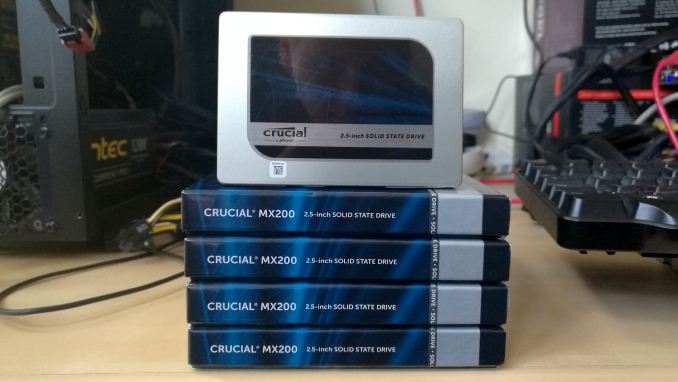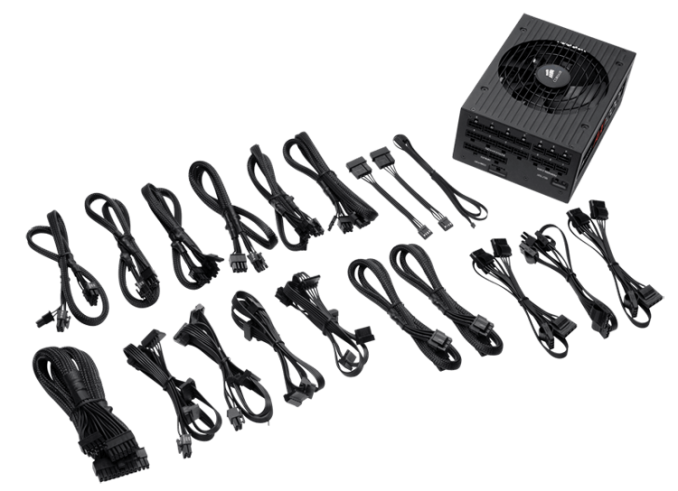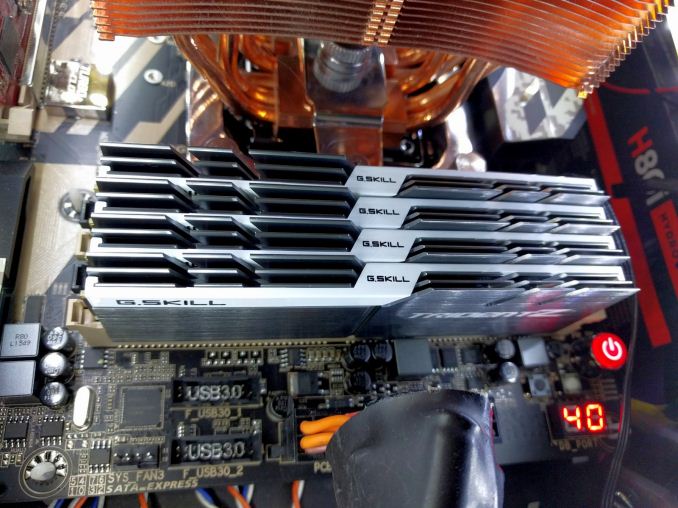The ECS Z270H4-I Durathon 2 Mini ITX Motherboard Review
by E. Fylladitakis on September 5, 2017 10:30 AM ESTReaders of our motherboard review section will have noted the trend in modern motherboards to implement a form of MultiCore Enhancement / Acceleration / Turbo (read our report here) on their motherboards. This does several things, including better benchmark results at stock settings (not entirely needed if overclocking is an end-user goal) at the expense of heat and temperature. It also gives, in essence, an automatic overclock which may be against what the user wants. Our testing methodology is ‘out-of-the-box’, with the latest public BIOS installed and XMP enabled, and thus subject to the whims of this feature. It is ultimately up to the motherboard manufacturer to take this risk – and manufacturers taking risks in the setup is something they do on every product (think C-state settings, USB priority, DPC Latency/monitoring priority, overriding memory sub-timings at JEDEC). Processor speed change is part of that risk, and ultimately if no overclocking is planned, some motherboards will affect how fast that shiny new processor goes and can be an important factor in the system build.
The ECS Z270H4-I Durathon 2 is a shining example of the abovementioned methodology risks. While almost every manufacturer has multi-core acceleration enabled by default, ECS not only enables this feature by default but also has the Z270H4-I Durathon 2 pushing our 7700K to 4.4GHz, which is its turbo setting, and maintaining it while the CPU remains under load. We tested the Z270H4-I Durathon 2 with the 17/03/09 BIOS.
| Test Setup | |
| Processor | Intel Core i7-7700K (ES, Retail Stepping), 91W, $340 4 Cores, 8 Threads, 4.2 GHz (4.5 GHz Turbo) |
| Motherboards | ECS Z270H4-I Durathon 2 |
| Cooling | Alphacool Eisbaer 240 |
| Power Supply | Corsair AX1200i Platinum PSU |
| Memory | G.Skill DDR4-2400 C15 2x16 GB 1.2V |
| Memory Settings | XMP @ 2400 |
| Video Cards | MSI GTX 770 Lightning 2GB (1150/1202 Boost) |
| Hard Drive | Crucial MX200 1TB |
| Case | Open Test Bed |
| Operating System | Windows 7 64-bit SP1 |
Thank you to Crucial for providing us with MX200 SSDs. Crucial stepped up to the plate as our benchmark list grows larger with newer benchmarks and titles, and the 1TB MX200 units are strong performers. Based on Marvell's 88SS9189 controller and using Micron's 16nm 128Gbit MLC flash, these are 7mm high, 2.5-inch drives rated for 100K random read IOPs and 555/500 MB/s sequential read and write speeds. The 1TB models we are using here support TCG Opal 2.0 and IEEE-1667 (eDrive) encryption and have a 320TB rated endurance with a three-year warranty.
Further Reading: AnandTech's Crucial MX200 (250 GB, 500 GB & 1TB) Review
Thank you to Corsair for providing us with an AX1200i PSU. The AX1200i was the first power supply to offer digital control and management via Corsair's Link system, but under the hood it commands a 1200W rating at 50C with 80 PLUS Platinum certification. This allows for a minimum 89-92% efficiency at 115V and 90-94% at 230V. The AX1200i is completely modular, running the larger 200mm design, with a dual ball bearing 140mm fan to assist high-performance use. The AX1200i is designed to be a workhorse, with up to 8 PCIe connectors for suitable four-way GPU setups. The AX1200i also comes with a Zero RPM mode for the fan, which due to the design allows the fan to be switched off when the power supply is under 30% load.
Further Reading: AnandTech's Corsair AX1500i Power Supply Review
Thank you to G.Skill for providing us with memory. G.Skill has been a long-time supporter of AnandTech over the years, for testing beyond our CPU and motherboard memory reviews. We've reported on their high capacity and high-frequency kits, and every year at Computex G.Skill holds a world overclocking tournament with liquid nitrogen right on the show floor.
Further Reading: AnandTech's Memory Scaling on Haswell Review, with G.Skill DDR3-3000













19 Comments
View All Comments
Hixbot - Wednesday, September 6, 2017 - link
Audiophilos are not going to use the DAC on a motherboard. They're going to use HDMI to their own DAC in the AVR.petteyg359 - Thursday, September 7, 2017 - link
With a name like that, I'm expecting a 462-pin socket for my old Durons and Athlons :)zodiacfml - Friday, September 8, 2017 - link
Nice enough for me. Are there any competing boards versus this one?Beaver M. - Friday, September 8, 2017 - link
Why would you not test temperatures and power usage of an ITX board?Instead performance benchmarks that always only show how useless they really are...
Beaver M. - Friday, September 8, 2017 - link
Nevermind, Im stupid. Theres power usage at least.Brianmmm - Monday, September 18, 2017 - link
This one is most assuredly NOT useless...http://www.anandtech.com/show/9854/asus-maximus-vi...
MenhirMike - Friday, September 8, 2017 - link
I have that board for my HTPC - it's pretty much the only board that combines Mini-ITX, Display Port out (for HDMI 2.0 since the HDMI on Kaby Lake is still only 1.4) and can be powered with just one (instead of 2) 4-Pin 12V connectors (for owners of some HTPC cases with power supplies that weren't made for higher end systems).The BIOS is pretty bare bones, but for the price, it's a great HTPC board, combined with a Celeron G3930 and 4 Gigs of RAM it's a good package.
MenhirMike - Friday, September 8, 2017 - link
(Also, since Antennas are part of the package, a $20 Intel 8260 WiFi/BT card is all that's needed to avoid having to use a PCIe or USB WiFi solution)EnFission - Friday, September 8, 2017 - link
You can plugin a 4 pin power cable into an 8 pin motherboard connector, you'll just have less power at your disposal. Not that it's a problem with a Celeron G3930. You'd be better off with an Asus Strix B250 board. It has DisplayPort, built-in wifi so you don't have to pay even more, retails for the same price as this ECS board, and is from a much more reputable manufacturer with higher quality parts. Losing out on the Z270 chipset doesn't matter because of your CPU choice and the lack of an 8 pin power connector.